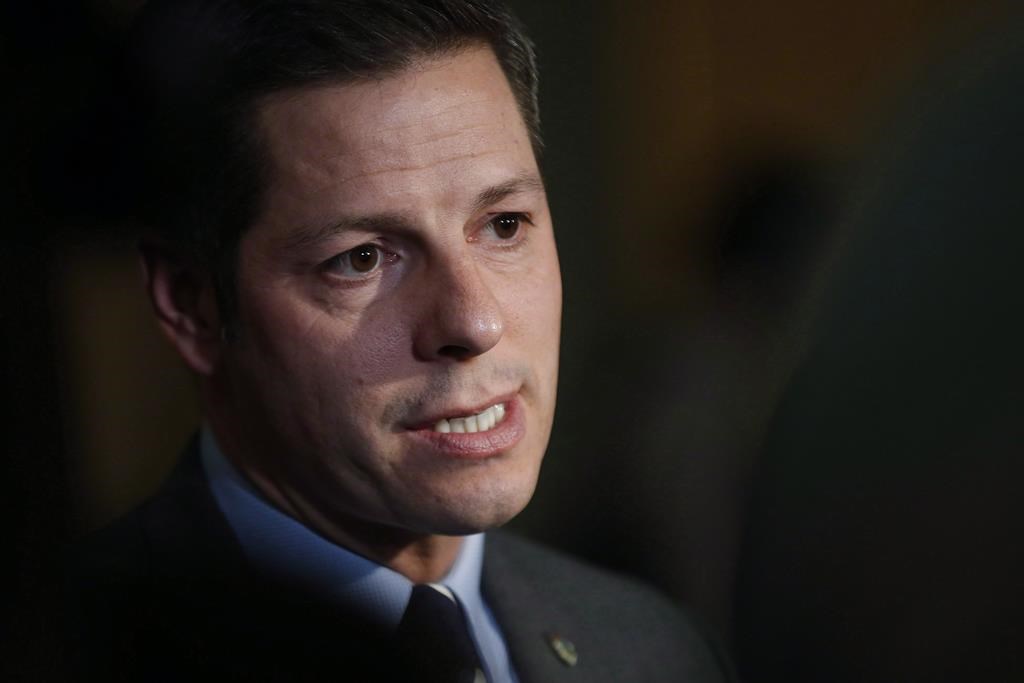Winnipeg has joined other big cities across Canada calling for billions of dollars in help from the federal government during COVID-19.

The Federation of Canadian Municipalities (FCM) says cities will need between $10 billion and $15 billion over the next six months to pay for services while they see revenues decline.
“Cities across Canada are incredibly important economic drivers for provinces and, in fact, for the entire country,” Winnipeg’s mayor Brian Bowman said Thursday.
“As Canadians continue to do their part by staying home, residents are depending on municipal services more than ever before (but) revenues are drying up across the country while the costs continue to rise.”
Bowman said because municipal governments like Winnipeg’s aren’t able to run deficits, cities are “getting anxious about the future.
“While multi-year balanced budgets have put the City of Winnipeg in a better position than some, we’re not immune to the crisis facing municipalities as the length of the pandemic continues to grow,” he said.
The City of Winnipeg has declared a state of emergency and has deferred property and business taxes during the novel coronavirus, a move expected to cost an estimated $5.2 million in revenue.
A city report this week estimated the city could lose $12 million a month during the pandemic.
To offset those losses the city has already been forced to reduce discretionary spending and has temporarily laid off hundreds of non-permanent staff.
On Wednesday the city also announced it will drastically reduce Winnipeg Transit service and temporarily lay off 253 bus drivers starting next month.
Bowman said the minimum $10 billion in emergency operating funding requested by the FCM includes at least $7.6 billion in direct allocations — like the gas tax fund — for all local governments and another $2.4 billion for municipalities with public transit systems.

Absent federal help, the federation says local councils could be forced to cut spending further or approve large tax increases.
Asked about the funding request, Prime Minister Justin Trudeau noted municipalities are constitutionally governed by the provinces, but added his government would work with provinces and “directly with municipalities” on issues.
Municipal officials have been making the case for weeks about the need for financial help as they suffer mounting revenue losses, and fear more coming if shuttered businesses fail to reopen once health restrictions are slowly lifted.
Local leaders argue provincial coffers may not be able to help out much more.
Forecasts from TD Economics on Thursday suggested GDP contractions and unemployment rates will be sharpest in oil-producing regions, with Alberta feeling the worst of it.

Smaller provinces will “see severe contractions” but fare slightly better than Ontario and Quebec, the report said.
In response, the federal government has given money to provinces to cover health-care costs and targeted help for the oil and gas sector.
The Bank of Canada has also gone on an unprecedented $50 billion provincial bond-buying program to effectively provide low-cost financing.
Federal New Democrat MP Taylor Bachrach, the party’s critic for infrastructure and communities, said municipal spending cuts would “be devastating to workers and residents” but “also make the recovery more difficult.” He called for a swift spending response.
Federal spending on emergency aid measures is quickly creeping towards $110 billion, not including credit help, with more details expected Friday morning when the parliamentary budget officer weighs in with new forecasts.
As of Tuesday, the government had spent $21.3 billion on the Canada Emergency Response Benefit, a $2,000-a-month benefit to workers. The figures show there have been 6.82 million unique applicants for the program.
–With files from The Canadian Press

Questions about COVID-19? Here are some things you need to know:
Health officials caution against all international travel. Returning travellers are legally obligated to self-isolate for 14 days, beginning March 26, in case they develop symptoms and to prevent spreading the virus to others. Some provinces and territories have also implemented additional recommendations or enforcement measures to ensure those returning to the area self-isolate.
Symptoms can include fever, cough and difficulty breathing — very similar to a cold or flu. Some people can develop a more severe illness. People most at risk of this include older adults and people with severe chronic medical conditions like heart, lung or kidney disease. If you develop symptoms, contact public health authorities.
To prevent the virus from spreading, experts recommend frequent handwashing and coughing into your sleeve. They also recommend minimizing contact with others, staying home as much as possible and maintaining a distance of two metres from other people if you go out.
For full COVID-19 coverage from Global News, click here.





Comments